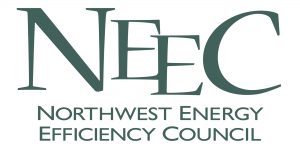Washington has the same funnel process as Oregon, but since the session started sooner, it’s deeper in the funnel. Here are some items of interest. (To view bill language, go to http://www.leg.wa.gov/pages/home.aspx and search by bill number.)
ESSB 5438: This bill is the near lone survivor of an onslaught of bills seeking to amend the state’s I-937 statute. ESSB 5438 has currently passed the Senate and is being heard in a House committee. The legislation would allow I-937 utilities to "rollover" conservation resources acquired in a biennium beyond the target amount and use those resources to meet future targets in the next 3 successive biennial periods. This legislation is strongly supported by a number of the state’s utilities. NEEC has alternatively offered, and supported a now dead bill, that allowed these utilities to use that excess conservation to meet renewable energy requirements. However, this idea did not gain support from the environmental advocacy community and did not move forward.
SHB 1466/SB 5349: This legislation addresses a host of issues related to public works contracting procedures. The state periodically re-authorizes the use of design-build, GC/CM, and other alternative contracting methods for construction. This bill provides that re-authorization for another period of time. In the House Capital Committee, amendment language (endorsed by NEEC) was added that provides the option for public owners to use performance based life cycle cost analysis as selection criteria when evaluating design-build contractors for public projects. The feature is not a mandated requirement, but allows for the opportunity to consider the energy operating costs of a building when making a selection of the design-build team. Not surprisingly, this feature ran into fierce resistance by traditional stakeholder groups. However, chances that the language will survive final passage of the bill look very good.
Capital Budget: The capital budget for the state is typically one of the last pieces of legislation that gets active consideration during the session. This year will be no different. Since ex-Governor Gregoire’s capital budget is not being used by legislators, we can expect the Legislature to develop their own document. NEEC is working closely with House Capital Budget Chair, Rep. Hans Dunshee, to advocate for another commitment of capital dollars to energy efficiency grants for public buildings. Over the last 3 years, the state has committed $215M to this program making it one of the nation’s largest commitments to revitalization of public building infrastructure. We won’t know about new funding for this effort until the very end of session.
